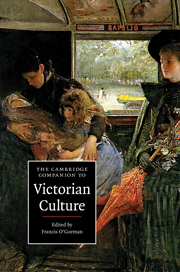2 - Science and culture
Published online by Cambridge University Press: 28 July 2010
Summary
In 1882, in the pages of the widely read journal, the Nineteenth Century, Matthew Arnold (1822-88), poet, essayist and social and literary critic, took the biologist Thomas Henry Huxley (1825-95) to task for his views on the ingredients of a proper education. Arnold rejected Huxley's proposal 'to make the training in natural science the main part of education, for the great majority of mankind at any rate'. Scientific knowledge, Arnold declared, was unable put us 'into relation with our sense for conduct, our sense for beauty'. The moral and aesthetic impulses were essential to human beings because of our very nature. If science could not fulfil basic human needs, then, Arnold argued, we must turn to another body of learning as the foundation of education: classical language and literature. As befits a graduate of Oxford, Arnold defended the value of 'knowing the Greeks and Romans, and their life and genius, and what they were and did in the world'. He maintained that the 'instinct for beauty' and the 'instinct for conduct' were served by classical literature 'as it is served by no other literature'. From Arnold's perspective, Huxley's science-based conception of education was impoverished.
In the past, Arnold's trenchant criticisms of Huxley have often been read as evidence of a rupture between science and literature continuing into the twentieth century, most poignantly expressed by C. P. Snow in his The Two Cultures (1959). But does the debate between Huxley and Arnold in the early 1880s really mark the origins of a cultural divide between scientists and literary intellectuals?
- Type
- Chapter
- Information
- The Cambridge Companion to Victorian Culture , pp. 12 - 42Publisher: Cambridge University PressPrint publication year: 2010
- 9
- Cited by

